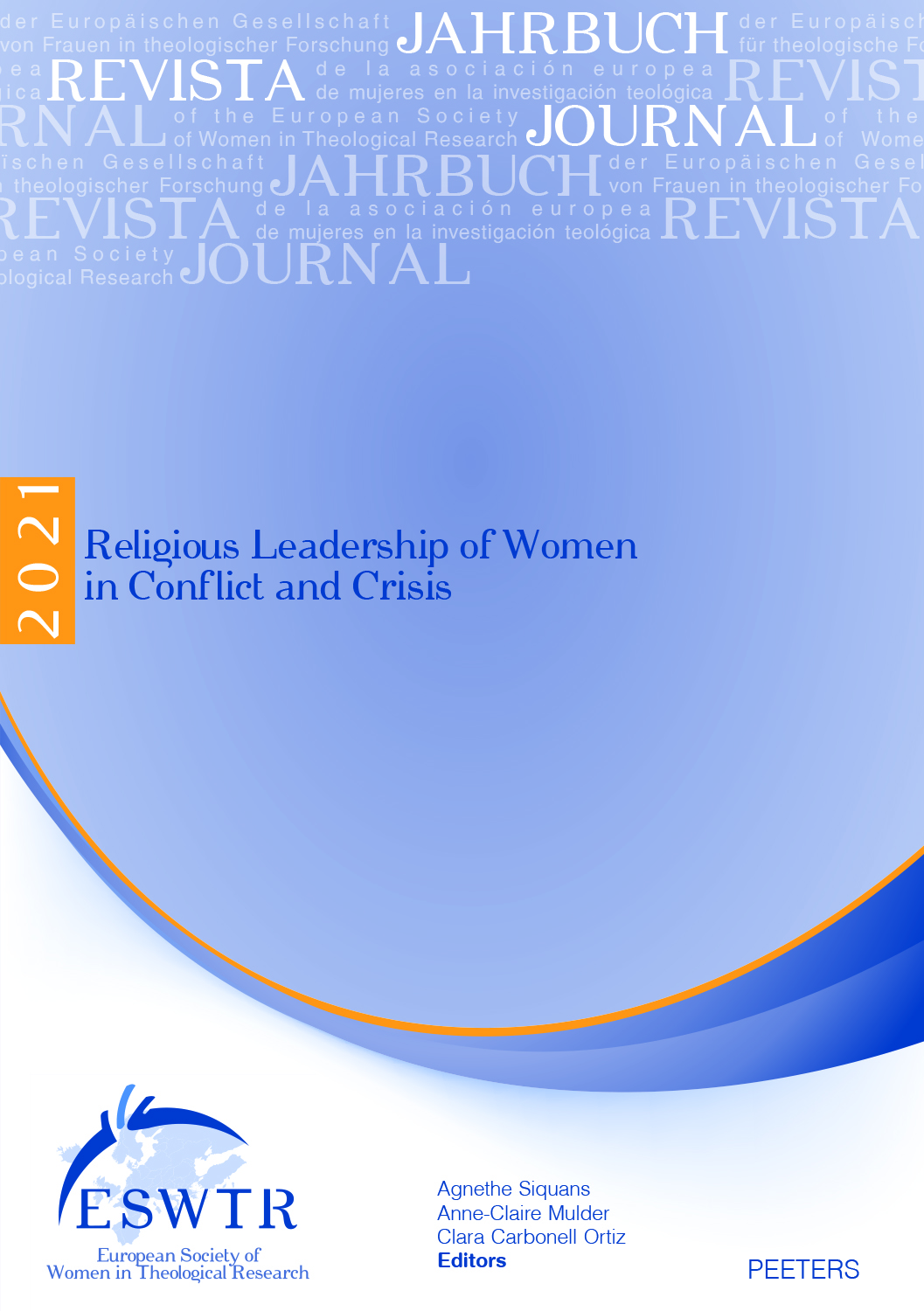 previous article in this issue previous article in this issue | next article in this issue  |

Preview first page |
Document Details : Title: Visiones de la cosmovisión andina para Vivir Bien Author(s): TOKARSKI, Irene Journal: Journal of the European Society of Women in Theological Research Volume: 23 Date: 2015 Pages: 131-141 DOI: 10.2143/ESWTR.23.0.3103636 Abstract : En los últimos años, la cosmovisión andina ha posesionado el modelo de desarrollo del Vivir Bien (Suma Qamaña) en la discusión internacional que inclusive ha sido incorporado en las constituciones de Ecuador y Bolivia y que ha tenido un eco importante en Europa. Se trata de una visión inclusiva que conoce polos adversos pero que no apunta a la exclusión del otro, sino a la complementariedad de las contradicciones. Esta inclusión se refiere tanto a hombres y mujeres como a la naturaleza viviente y no viviente que todos juntos conforman un todo animado. Como aporte a la teología feminista podemos rescatar de este modelo sobre todo el rechazo de estructuras jerárquicas en cualquier nivel de la sociedad y naturaleza; el claro No a los modos de pensar dualistas y excluyentes, lo que nos exige la capacidad de convivir en diversidad y aceptar las tensiones resultantes; y el principio de la correspondencia que nos relaciona con todas las formas de vida y que nos exige tomar en cuenta los efectos de nuestro actuar en todas las formas de vida. The Andean cosmic vision has positioned the developmental model of the Good (Communal) Life (Suma Qamaña) prominently in the international discussion. This model has been incorporated into the constitutions of Ecuador and Bolivia and has raised interest especially in Europe, too. It refers to an inclusive worldview which comprises sharp contrasts but does not aim at the exclusion of the other; instead it aims at the complementarity of poles. This inclusive model embraces both men and women, animate and inanimate nature, all of which create a meaningful whole. Particularly important contributions to feminist theology are the rejection of hierarchical relationships on all levels of society and nature; the rejection of dualistic, exclusive modes of thinking, which requires a capacity to live with diversity and the tensions that are part of it; the principle of correspondence that relates human beings to all other forms of life and makes us aware of the consequences of human activities for other forms of life. Die andine Kosmovision hat in den vergangenen Jahren prominent das Entwicklungsmodell des Guten (Zusammen-)Lebens (Suma Qamaña) in der internationalen Diskussion positioniert, das sogar in den Verfassungen von Ekuador und Bolivien verankert wurde und besonders auch in Europa auf großes Interesse stößt. Dabei geht es um eine inklusive Weltsicht, die zwar heftige Gegensätze kennt, aber nicht auf die Ausschließung des anderen abzielt, sondern auf eine Komplementarität der Pole. Diese Inklusion umfasst Männer und Frauen, die belebte und die unbelebte Natur, die gemeinsam ein sinnerfülltes Ganzes bilden. Als Beitrag zur feministischen Theologie kann davon vor allem die Ablehnung hierarchischer Beziehungen auf allen Ebenen der Gesellschaft und Natur aufgenommen werden; das klare Nein zu dualistischen und exklusiven Denkweisen, das die Fähigkeit erfordert, mit einer Vielfalt und den daraus entstehenden Spannungen zu leben; und das Prinzip der Korrespondenz, das uns in Beziehung setzt mit allen Lebensformen und uns auf die Auswirkungen unseres Tuns auf alle anderen Lebensformen verweist. |
 |


